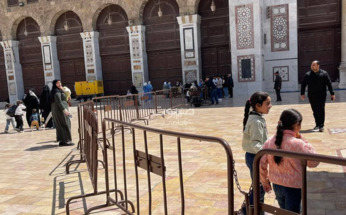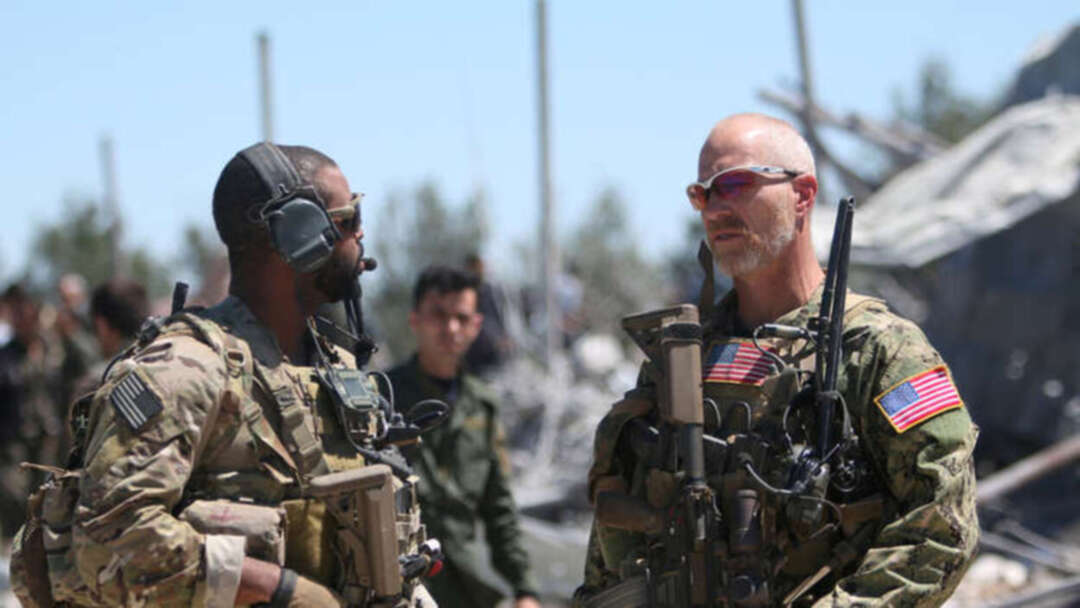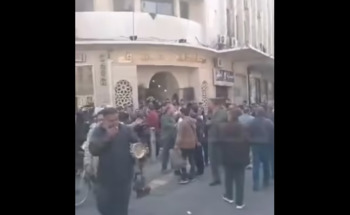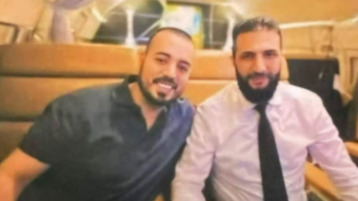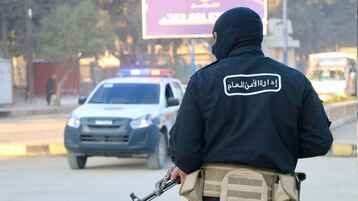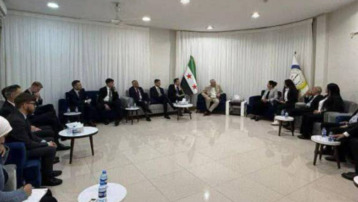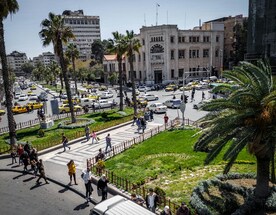-
Heroic Resistance and Victims of Atrocity in Marivan-Iran
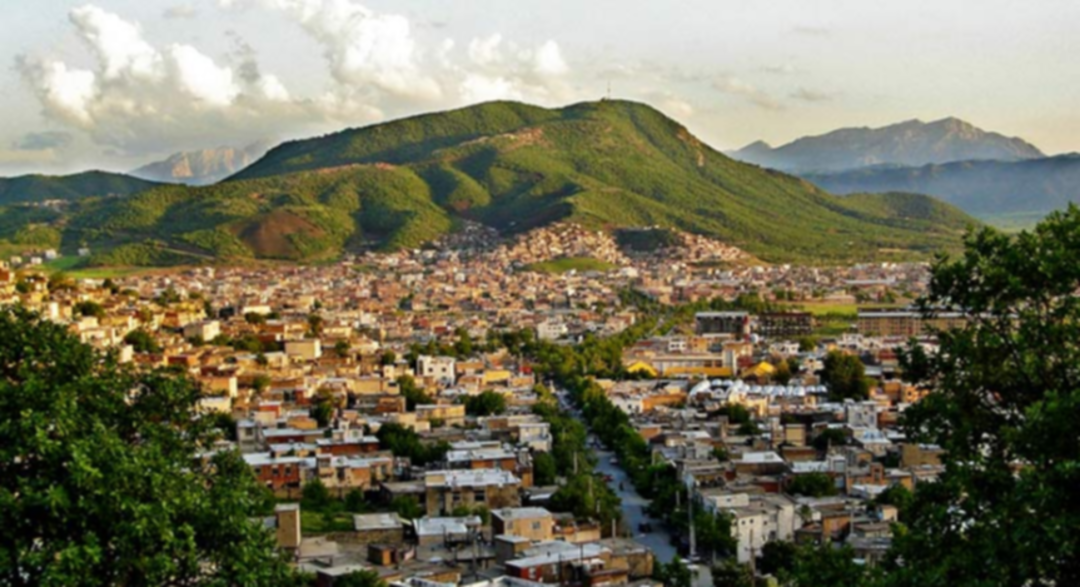
By: Hassan.Mahmoudi
The city of Marivan is located in Kordestan province. This city and part of Iraq share the same border. The history of Marivan goes back to about 1800 B.C., thus a point of interest for many international tourists. Marivan is considered one of the major cities of Kurdistan province and has a long history of battles with emperors and dictators of its time.
Marivan’s ancient forts, its grasslands, and mighty mountains have been home to many legends and warriors. Although the people of Marivan have had their share of ebb and flow at different eras, they have been experiencing their worst miseries since under the reign of this regime. The people of Marivan, have been the creators of many heroic events in their fight against the ruling mullahs in the span of the last 40 years, hence, enriching their history a step further. Marivan’s participation in the recent wave of uprisings in Iran could be considered the pinnacle of their heroism. It all started with a sudden and steep hike at gas prices in Iran.
Marivan wasted no time to protest the hike. Below is a brief narrative of a few witnesses from Marivan.
The protests in Marivan started on Saturday, November 15, 2019, around 10 a.m. The youth of Marivan turned off their vehicles and left their cars on the roads, a peaceful protest. Small protest signs were carried by the youths and were affixed to their vehicles. As time passed, in the afternoon, the security forces entered the city, then raided the people in Sarbaz Square first and made their way to other major squares of the city. They began to remove the license plates from the cars and shattered the glass windshields of many cars. They threatened the people that the owners of the cars that their license plates have been confiscated will be recognized and
At the same time, the members of the Special Guard entered the Shabrang area and attacked the people. The people, this time, counter attacked and forced the guards back. The guards took refuge in a building. A group of regime militia and plainclothes incited the people to attack the building. The protesters were not fooled and did not fall into that trap. As nighttime approached and darkness fell on the city, the guards housed in the building reached the roof and began to shoot at the protesters. At first, people thought the bullets coming towards them are dummy bullets, but proved to be real killer bullets. Two young protesters were shot and killed; Osman Naderi was hit in his head and Behrooz Maleki, in his heart.
Everyone was in a state of shock and disbelief. The roads were blocked by the regime’s security forces and no way to take the wounded to the hospital. A few wounded were taken to Najaf hospital, carried on people’s shoulders or by motorcycles. Upon hearing the news of the deaths and wounded, almost the whole city was in a state of disbelief. The events were so unexpected that soon the main city hospital was full and it experienced a shortage of medical personnel. Just two doctors were available, thus, unable to attend every wounded person. Behorroz Maleki was still breathing when he was brought to the hospital, but because of severe damage to his heart, the doctors announced he is beyond help and tried to attend others in need.
The peaceful protests of the people were met with guns and bullets of the regime and gave birth to violence. The city of Marivan became yet another fort, fighting for its dignity. The main areas of the city, such as Jihad Square, Koure Mousavi, Sarbaz Square, Shabrang and Bavehrashi Square were conquered and occupied by the youths and the women of the city. The people used rocks to fight against guns and bullets.
In his book, “Dark Over Denmark”, Alan Levin explains that Hitler could not win in Denmark simply because the Danes were not allowed to do so, and history was now being repeated. The brave young men and women of Marivan did not allow Khamenei's security forces to do so as well. In order to deceive the protesters, the regime had asked a number of his security forces to wear the traditional clothing of the Kurds, portraying the anti-government protests as a local conflict. Regime’s deceiving tactic proved to be very ineffective. As time passed by, more clashes between the regime’s brutal guards and the protesters were happening across the city. The widespread of protests made it impossible for the regime to defeat it. The regime’s guards seemed to have lost their confidence and were puzzled and confused, incapable of attacking the protestors. Marivan’s youth, raged by all kinds of discrimination against them and the ignorance of the authorizes to their living conditions, found this the perfect opportunity to materialize their dismay by attacking guard stations, government banks, gas stations, and government-affiliated supermarkets and set them on fire.
Despite the absence of internet and cellular services, the people of Marivan continued their protests for 7 days. Despite the lack of international support for the rights of the people of Marivan and Kurdistan, the protesters did not give up and gradually became aware of their own unique strength and power. On another note, the recent events in Iran have proven that the regime is unable and incapable of suppressing the widespread protests in Iran.
Tags
You May Also Like
Popular Posts
Caricature
BENEFIT AGM approves 10%...
- March 27, 2025
BENEFIT, the Kingdom’s innovator and leading company in Fintech and electronic financial transactions service, held its Annual General Meeting (AGM) at the company’s headquarters in the Seef District.
During the meeting, shareholders approved all items listed on the agenda, including the ratification of the minutes of the previous AGM held on 26 March 2024. The session reviewed and approved the Board’s Annual Report on the company’s activities and financial performance for the fiscal year ended 31 December 2024, and the shareholders expressed their satisfaction with the company’s operational and financial results during the reporting period.
The meeting also reviewed the Independent External Auditor’s Report on the company’s consolidated financial statements for the year ended 31 December 2024. Subsequently, the shareholders approved the audited financial statements for the fiscal year. Based on the Board’s recommendation, the shareholders approved the distribution of a cash dividend equivalent to 10% of the paid-up share capital.
Furthermore, the shareholders endorsed the allocation of a total amount of BD 172,500 as remuneration to the members of the Board for the year ended 31 December 2024, subject to prior clearance by related authorities.
The extension of the current composition of the Board was approved, which includes ten members and one CBB observer, for a further six-month term, expiring in September 2025, pending no objection from the CBB.
The meeting reviewed and approved the Corporate Governance Report for 2024, which affirmed the company’s full compliance with the corporate governance directives issued by the CBB and other applicable regulatory frameworks. The AGM absolved the Board Members of liability for any of their actions during the year ending on 31st December 2024, in accordance with the Commercial Companies Law.
In alignment with regulatory requirements, the session approved the reappointment of Ernst & Young (EY) as the company’s External Auditors for the fiscal year 2025, covering both the parent company and its subsidiaries—Sinnad and Bahrain FinTech Bay. The Board was authorised to determine the external auditors’ professional fees, subject to approval from the CBB, and the meeting concluded with a discussion of any additional issues as per Article (207) of the Commercial Companies Law.
Speaking on the company’s performance, Mr. Mohamed Al Bastaki, Chairman BENEFIT , stated: “In terms of the financial results for 2024, I am pleased to say that the year gone by has also been proved to be a success in delivering tangible results. Growth rate for 2024 was 19 per cent. Revenue for the year was BD 17 M (US$ 45.3 Million) and net profit was 2 Million ($ 5.3 Million).
Mr. Al Bastaki also announced that the Board had formally adopted a new three-year strategic roadmap to commence in 2025. The strategy encompasses a phased international expansion, optimisation of internal operations, enhanced revenue diversification, long-term sustainability initiatives, and the advancement of innovation and digital transformation initiatives across all service lines.
“I extend my sincere appreciation to the CBB for its continued support of BENEFIT and its pivotal role in fostering a stable and progressive regulatory environment for the Kingdom’s banking and financial sector—an environment that has significantly reinforced Bahrain’s standing as a leading financial hub in the region,” said Mr. Al Bastaki. “I would also like to thank our partner banks and valued customers for their trust, and our shareholders for their ongoing encouragement. The achievements of 2024 set a strong precedent, and I am confident they will serve as a foundation for yet another successful and impactful year ahead.”
Chief Executive of BENEFIT; Mr. Abdulwahed AlJanahi commented, “The year 2024 represented another pivotal chapter in BENEFIT ’s evolution. We achieved substantial progress in advancing our digital strategy across multiple sectors, while reinforcing our long-term commitment to the development of Bahrain’s financial services and payments landscape. Throughout the year, we remained firmly aligned with our objective of delivering measurable value to our shareholders, strategic partners, and customers. At the same time, we continued to play an active role in enabling Bahrain’s digital economy by introducing innovative solutions and service enhancements that directly address market needs and future opportunities.”
Mr. AlJanahi affirmed that BENEFIT has successfully developed a robust and well-integrated payment network that connects individuals and businesses across Bahrain, accelerating the adoption of emerging technologies in the banking and financial services sector and reinforcing Bahrain’s position as a growing fintech hub, and added, “Our achievements of the past year reflect a long-term vision to establish a resilient electronic payment infrastructure that supports the Kingdom’s digital economy. Key developments in 2024 included the implementation of central authentication for open banking via BENEFIT Pay”
Mr. AlJanahi concluded by thanking the Board for its strategic direction, the company’s staff for their continued dedication, and the Central Bank of Bahrain, member banks, and shareholders for their valuable partnership and confidence in the company’s long-term vision.
opinion
Report
ads
Newsletter
Subscribe to our mailing list to get the new updates!

